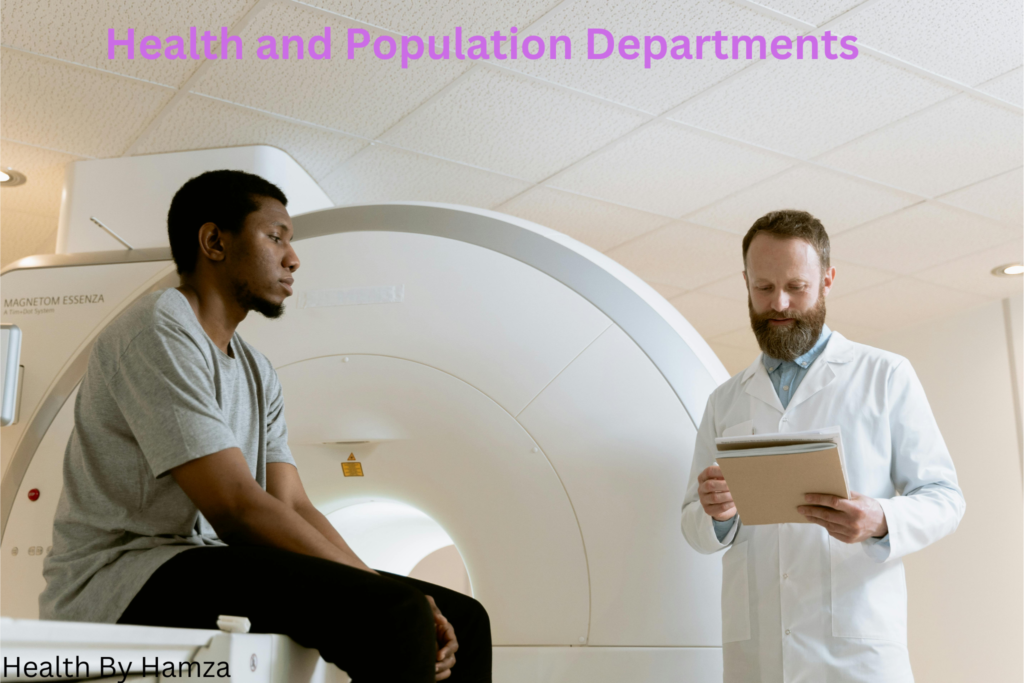Introduction
Health and population departments play a crucial role in ensuring the well-being of societies by managing public health services and addressing population concerns. These departments work together to create policies, implement health programs, and control population growth to maintain a balanced and sustainable society.
Table of Contents
Understanding Health Departments
Definition and Purpose
Health departments are governmental agencies responsible for promoting and protecting public health. Their primary goal is to ensure that communities have access to healthcare services, prevent the spread of diseases, and enhance overall well-being.
Key Responsibilities
- Monitoring and controlling disease outbreaks
- Ensuring food and water safety
- Regulating healthcare facilities
- Implementing health education programs
Role in Disease Prevention
One of the most important roles of health departments is to prevent and manage disease outbreaks through vaccination programs, sanitation measures, and public health campaigns.
Functions of Health Departments
Public Health Initiatives
Health departments run various programs focused on improving public health, such as immunization campaigns, anti-smoking initiatives, and fitness programs.
Regulation of Medical Services
They regulate hospitals, clinics, and pharmaceutical companies to ensure the quality and safety of medical services.
Emergency Response and Crisis Management
During pandemics or natural disasters, health departments play a critical role in managing emergencies and providing medical aid to affected populations.
Understanding Population Departments
What is a Population Department?
Population departments focus on managing demographic changes, family planning services, and migration policies to ensure balanced growth.
Key Objectives and Goals
- Promoting family planning and reproductive health
- Conducting demographic research and analysis
- Implementing birth control programs
Connection Between Population and Health
A growing population directly impacts healthcare systems, leading to increased demand for medical services, higher disease transmission rates, and greater strain on resources.
Impact of Population Growth on Health
Overpopulation and Healthcare Strain
Overcrowding in cities leads to limited access to hospitals, increased disease spread, and poor living conditions.
Family Planning and Birth Control Measures
Governments encourage contraception and reproductive health education to manage population growth effectively.
Government Strategies to Manage Population Growth
- Implementing education programs on family planning
- Providing access to birth control and healthcare services
- Promoting women’s empowerment and employment
Key Health Programs Run by Governments
Vaccination Drives
Mass immunization programs help prevent diseases like measles, polio, and influenza.
Maternal and Child Health Programs
These initiatives focus on reducing infant mortality rates and improving prenatal care.
Nutrition and Malnutrition Prevention Programs
Governments provide food subsidies, fortification programs, and dietary guidelines to tackle malnutrition.
The Role of Health and Population Departments in Pandemics
During global health crises like COVID-19, these departments coordinate responses, implement safety measures, and develop vaccination programs to curb the spread.
Challenges Faced by Health and Population Departments
- Limited funding and resources
- Political interference and policy restrictions
- Public resistance to health initiatives
Future of Health and Population Management
- Investing in AI-driven healthcare solutions
- Strengthening global collaborations
- Enhancing public health education campaigns
Conclusion
Health and population departments are vital in shaping the well-being of societies. Addressing challenges through innovative policies and effective programs can ensure sustainable health and population management.

